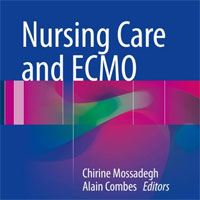Tag: delirium

Michael Lewis’ The Undoing Project: How do ER surgeons avoid dumb, deadly mistakes? Ask their doctor
In an excerpt from his new book Michael Lewis examines a Toronto doctor who helps trauma surgeons avoid errors in judgment when life and death are on the line. Doctors tended to see only what they were trained to see: That... read more

Identifying barriers to delivering the ABCDE bundle to minimize adverse outcomes for mechanically ventilated patients
Improved outcomes are associated with the Awakening, Breathing Coordination, Delirium and Early mobility/exercise (ABCDE) bundle; however, implementation issues are common. As yet, no study has integrated the barriers to... read more

Clinical summaries for hospitalised patients: time for higher standards
The average person remembers less than half of the information provided by healthcare professionals during a medical visit. The situation is arguably most challenging for patients leaving the hospital, where acute illness,... read more

The Confusion Assessment Method for the ICU-7 Delirium Severity Scale
Delirium severity is independently associated with longer hospital stays, nursing home placement, and death in patients outside the ICU. Delirium severity in the ICU is not routinely measured because the available instruments... read more

The association of sleep quality, delirium, and sedation status with daily participation in physical therapy in the ICU
Poor sleep is common in the ICU setting and may represent a modifiable risk factor for patient participation in ICU-based physical therapy (PT) interventions. This study evaluates the association of perceived sleep quality,... read more

Association between delirium superimposed on dementia and mortality in hospitalized older adults
In a prospective cohort study, Thiago Junqueira Avelino-Silva and colleagues examine the association of delirium superimposed on dementia on hospital mortality and 12-month mortality in hospitalized older adults. This was... read more

Intraoperative Oxidative Stress Associated With Postoperative Delirium
Intraoperative oxidative stress is associated with postoperative delirium in ICU patients after cardiac surgery, a study has found. Researchers from Vanderbilt University Medical Center, in Nashville, Tenn., came to this... read more

Efficacy of Oral Risperidone, Haloperidol, or Placebo for Symptoms of Delirium Among Patients in Palliative Care
In patients receiving palliative care, individualized management of delirium precipitants and supportive strategies result in lower scores and shorter duration of target distressing delirium symptoms than when risperidone... read more

Delirium in Critically Ill Children: An International Point Prevalence Study
In this multi-institutional, multinational point prevalence study of 994 subjects, delirium screening by the bedside nurse was feasible in children of all ages. PD was a common complication of critical illness, with a prevalence... read more

Experts reveal noisy wards can lead to terrifying hallucinations
How a stay in hospital can tip you over the edge: Experts reveal noisy wards can lead to terrifying hallucinations and even long-term harm. Recognizing the symptoms means patients receive the care they need and can make the... read more

Factors influencing physical activity and rehabilitation in survivors of critical illness
Eighty-nine papers were included. Five major themes and 28 sub-themes were identified, encompassing: (1) patient physical and psychological capability to perform physical activity, including delirium, sedation, illness severity,... read more

Delirium: Thinking Clearly About a Foggy Issue
Benzodiazepines are one of the leading causes of delirium. These drugs are already falling out of favor in critical care settings for other reasons; they are not easily titratable, and research suggests they can prolong a... read more

Protocol Lacking for Post-op Delirium
While 70% of anesthesiologists say they "frequently" or "occasionally" encounter postoperative delirium in their practices, more than three-fourths (77%) lack a process to screen for at-risk patients.... read more
SCCM Pod-330 Long-Term Mental Health Problems After Delirium in the ICU
Todd Fraser, MD, speaks with Arjen Slooter, MD, PhD, about the article, "Long-Term Mental Health Problems After Delirium in the ICU," published in Critical Care Medicine.... read more








